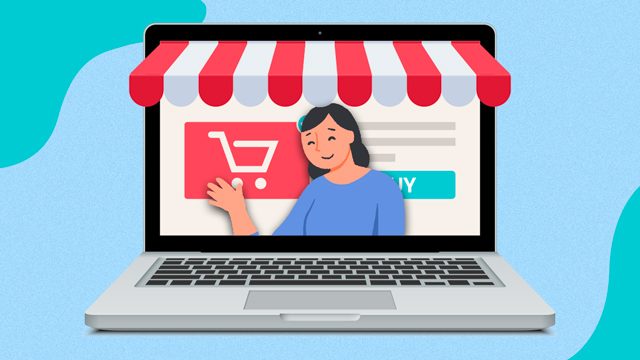SUMMARY
This is AI generated summarization, which may have errors. For context, always refer to the full article.


MANILA, Philippines – The COVID-19 pandemic has changed the way we do things – from rethinking the way we work to learning new ways to socialize amid physical distancing.
Some thought leaders would say that we have sped up our transition into a largely digital no-touch economy with the need to adapt. And one sign of this landscape shift is the rise of online businesses.
With almost everyone stuck in their homes and with many left struggling with forced leaves and “no-work-no-pay” office policies, it easy to understand how online selling swiftly took off as a way to augment income.
And this boom has not gone unnoticed. In fact, the government is reminding online sellers that they must also register their business and pay taxes.
An opportunity for small businesses
“Most of these habits will stay even after the pandemic,” said Lana Macapagal, Business Development Manager of Rakuten Viber, during her talk about hyperlocal online communities in a Web Wednesdays webinar held last May 27.
Macapagal detailed how online business habits under COVID-19 – whether its consumers engaging in more online shopping or it’s turning “quaranthings” (i.e., baking) into businesses – will most likely carry on even when malls go into full operation and face-to-face transactions will be possible again.
According to Macapagal, noticeable during these times is how consumers are exploring and trying new brands and services. Many may be able to use this digital boom as a window to set up their own business.
She attributes this patronization of online business to a “lack of distraction.” While many are working from home, they are less exposed to billboards, display ads, and other traditional forms of advertising. Many from consumer purchases come from personal recommendations and word-of-mouth advertising seen in niche groups on social media and their own communities.
“So in a way, there’s fair play with brands and more opportunity for smaller businesses to shine,” Macapagal explained.
Tips for the future
To maximize this opportunity for existing and aspiring online business entrepreneurs, Macapagal recommends the following steps moving forward amid COVID-19.
-
Tread lightly, shift strategies, and stay dynamic. Though many brands may already be adopting this strategy even though they may not know it, it’s still best to remind those that aren’t. We are currently living through uncertain times and nobody really knows how things can change in the following weeks and months.
Macapagal recommends that small businesses take advantage of their size and be ready to pivot. It’s best to connect directly with consumers and keep their ears close to the ground. Work hyperlocal and engage with niche and hyperlocal communities. -
Be aggressively proactive. Amid the anxiety, remember that this is an opportunity to acquire customers and build brand loyalty. Take advantage of people’s willingness to try out new products and services. Think of ways of promoting and starting conversations. Don’t be afraid to jump on weekly trends and taking advantage of what’s happening around you.
-
Stay extra-sensitive but not overreactive. “Even while being pro-active, keep into consideration what people need now, also, what they would need after,” said Macapagal.
Many times, newbie entrepreneurs confuse being proactive with “jumping the gun.” Rash decisions are never advisable. Still connected to keeping one’s ear to the ground, be sensitive enough to what people actually need at times like these.
As stated above, this is a time for experimentation, but with proper caution.
-
Authenticity cannot be faked. With the hyperconnectedness of people on social media nowadays, consumers hold accountability at high-regard. Businesses should have their consumers at heart, focusing on addressing concerns, and this must come from a genuine place. (Realign your brand values if needed.)
Online businesses can take inspiration from how hyperlocal communities on Facebook, Viber, and other messaging apps grew because they drilled down to answering specific needs – many being motivated by sheer bayanihan.
Small businesses should take this time to see how they can work on how they communicate their services in a human-centric way.
– Rappler.com
Add a comment
How does this make you feel?

There are no comments yet. Add your comment to start the conversation.